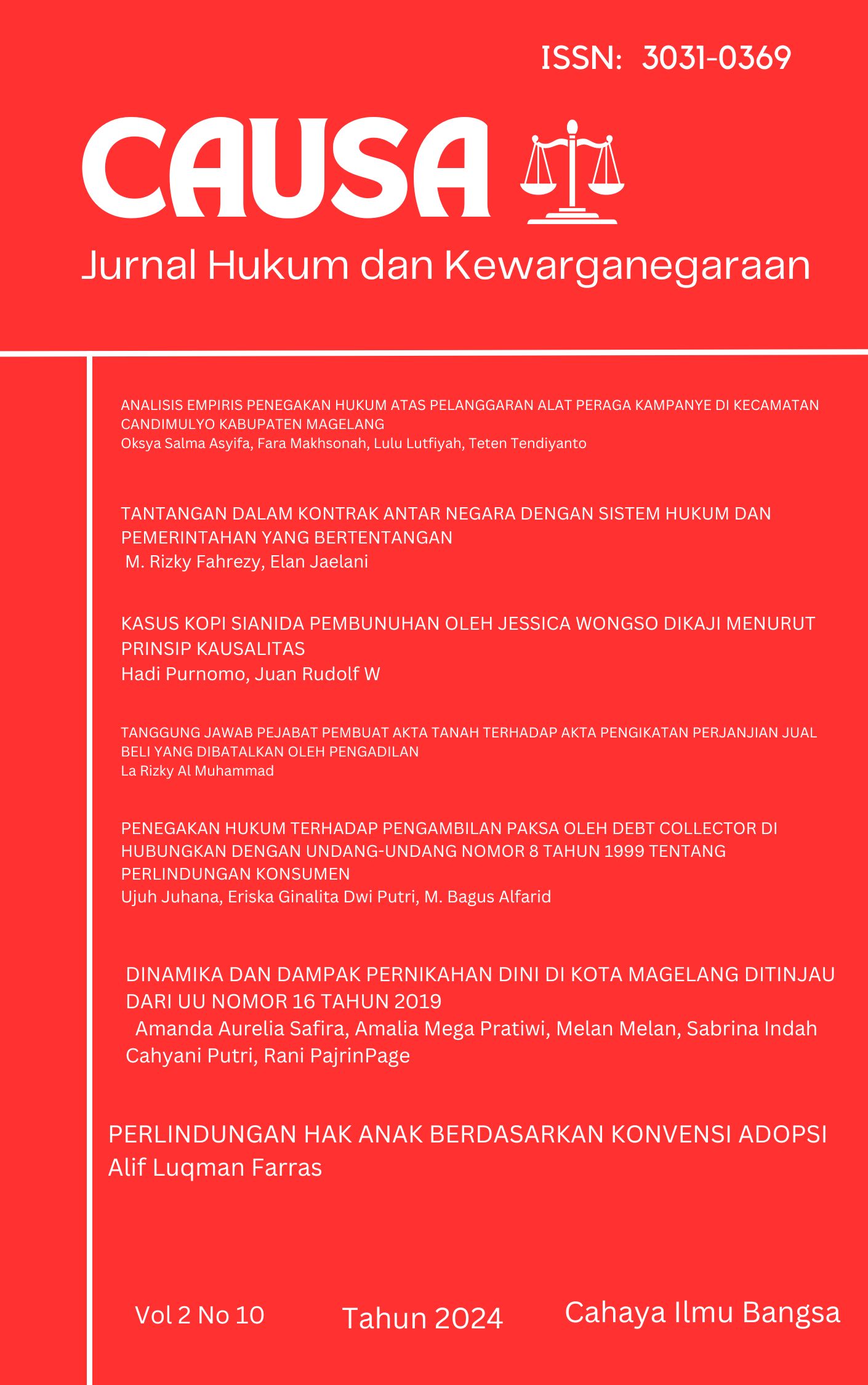TINJAUAN YURIDIS TERHADAP EFEKTIVITAS SANKSI ADMINISTRATIF DALAM PENEGAKAN HUKUM PAJAK DI INDONESIA
Main Article Content
Abstract
Tax law enforcement in Indonesia faces challenges in improving taxpayer compliance. Administrative sanctions, in the form of fines, interest, and tax increases, are important instruments in the tax law system to enforce regulations and provide a deterrent effect. However, the effectiveness of these sanctions is still debated, considering factors such as low legal awareness, perceptions of injustice, and weak law enforcement that influence the results. This study uses a juridical-normative approach through a literature study to assess the extent to which administrative sanctions are able to achieve legal objectives, including justice, legal certainty, and benefits for taxpayers and the state. The results of the study show that the success of administrative sanctions is highly dependent on consistent implementation, procedural justice, and strengthening dispute resolution mechanisms, such as the Tax Court. In addition, strengthening education and the use of technology, such as the e-filing system, also increase the effectiveness of law enforcement and taxpayer compliance. This study recommends reforging policies to strengthen normative and educational aspects in the application of sanctions, as well as ensuring transparency and fairness in the tax law enforcement process. Thus, the implementation of fair and effective administrative sanctions can increase voluntary taxpayer compliance and support the achievement of fiscal justice and the success of the national tax system.
